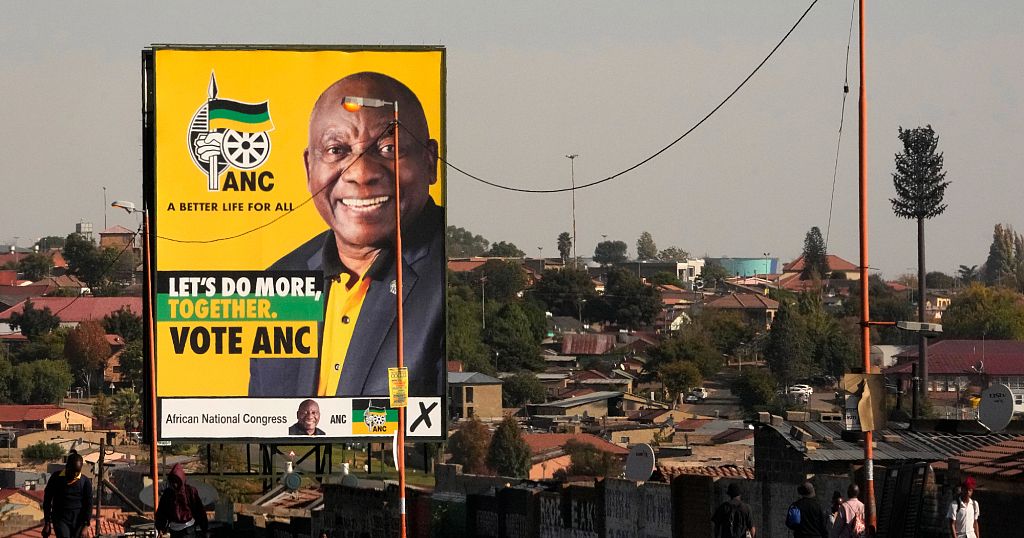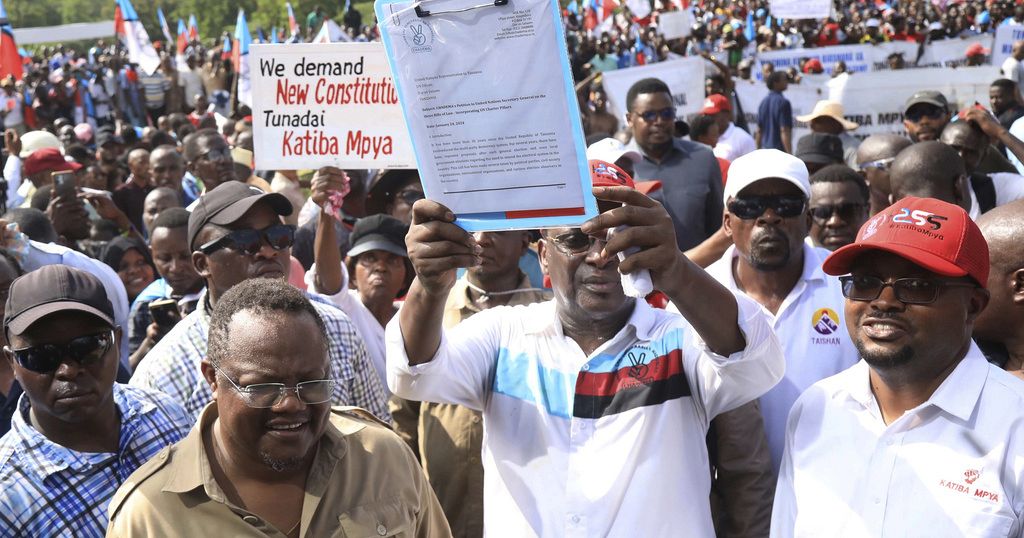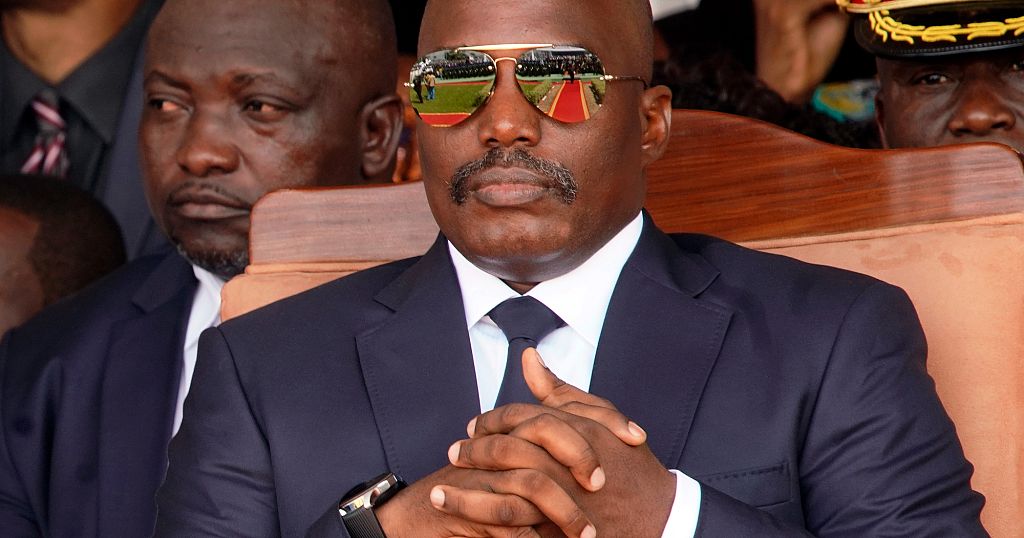Africa
Africa advances toward financial integration with new currency exchange marketplace{Business Africa}

Africa is making a significant stride toward financial integration with the launch of the Africa Currency Marketplace by the Pan-African Payment and Settlement System (PAPSS). This innovative platform is set to facilitate direct currency exchanges across the continent, reducing reliance on the US dollar and fostering a unified African capital market.
In an exclusive discussion on this development, Stan Zézé, CEO & Chairman of Bloomfield Investment, shared insights into the impact of this initiative on Africa’s financial landscape.
Zézé highlighted how the Africa Currency Marketplace could enhance liquidity and stabilize currencies within African markets. He also addressed the challenges associated with implementing such a system, citing the need for robust financial infrastructure and regulatory alignment among participating nations.
The initiative could also serve as a catalyst for the establishment of a unified African capital market. Zézé emphasized the crucial role of private rating agencies, such as Bloomfield, in providing credible assessments of financial risks and ensuring investor confidence. He argued that independent agencies offer unbiased ratings, contrasting with the African Union’s proposal for a publicly controlled agency, which might raise concerns over impartiality.
Zimbabwean Inventor Unveils Self-Powering Car
In what could be a revolutionary breakthrough in renewable energy, a Zimbabwean inventor claims to have developed a vehicle that generates its own electricity, eliminating the need for fuel or external charging. The technology reportedly harnesses the sun’s radio waves to produce power, a concept reminiscent of Nikola Tesla’s early vision.
While full technical details are yet to be disclosed, the invention has sparked excitement and curiosity in the scientific community. If proven viable, this innovation could significantly advance sustainable energy solutions, particularly in regions struggling with power shortages. Keith Baptist reports on the development, with experts calling for further research and investment to validate and potentially scale this technology.
Nigerians Spend 59% of Income on Food Amid Cost-of-Living Crisis
A new report by Picodi reveals that Nigerians are spending a staggering 59% of their household income on food, highlighting the country’s deepening economic crisis. Rising inflation, currency devaluation, and supply chain disruptions have contributed to soaring food prices, placing a heavy financial burden on citizens.
Economic analysts stress that addressing insecurity and supporting local farmers are key measures to reducing food costs. Many farmers face challenges such as banditry, poor infrastructure, and limited access to credit, all of which hinder production and distribution. Experts urge the Nigerian government to implement policies that promote agricultural investment and stabilize the nation’s economy.
As the crisis persists, many Nigerians are forced to make difficult financial choices, underscoring the urgent need for sustainable solutions to improve food security and overall economic stability.
Africa
Unprecedented trial for apartheid atrocities opens in South Africa

A significant step by South Africa’s legal system in confronting the atrocities of the country’s dark political past.
A judge this week approved the trial of two apartheid-era police officers for their involvement in the 1982 assassination of three student activists.
The prosecution is unprecedented. Until now, no individual had been held accountable for the crime of apartheid.
The case centers around three young freedome fighters killed in an explosion in 1982. The victims were part of a resistance movement opposed to the apartheid regime which enforced White-only rule and domination over the Black majority.
Experts say the trial could open the door for others.
Also this week, South Africa reopened an investigation into the death Albert Luthuli, a former president of the African National Congress (ANC) and Nobel Peace Prize laureate, who was killed in 1967.
The prosecuting authority seeks to have the findings of previous inquests into Luthuli overturned.
The authorities at the time had concluded that Luthuli’s death the result of an accident.
The development comes more than 30 years since South Africa became a democracy and after a Truth commission unearted numerous atrocities.
Africa
Tanzania opposition says jailed leader not seen by family, lawyers

Tanzania’s main opposition party said it had failed to get access to its leader who is in detention on treason charges.
CHADEMA said Friday that the family and lawyers of Tundu Lissu had failed to see him at a Dar es salaam jail where he had been kept since his arrest on April 9.
In a statement, the party said it held the Tanzanian government and Prisons Service responsible ble for Lissu’s safety.
The Prisons Service quickly denied that Lissu had been moved from jail.
In a statement, the agency dismissed CHADEMA’s concerns as misinformation.
“We would like to inform the public that Tundu Lissu is safe and he is still detained at Keko Prison in Dar es Salaam according to the country’s laws and procedures,” the Service said in a statement.
Lissu came second in Tanzania’s 2020 presidential election. Last week, he was arrested and later charged with treason after a speech demanding election reforms.
Prosecutors said the speech called for an uprising.
With another presidential vote on the horizon, critics say President Samia Suluhu Hassan’s government has ramped repression against the opposition.
This week, the election commission banned CHADEMA from taking part in elections after the party refused to sign a document pledging to obey the commission’s orders.
Africa
DRC: Kabila arrives in rebel-held Goma after return from exile

Former Congolese President Joseph Kabila, accused by the government of supporting rebels in the country’s east, returned to Congo from self-imposed exile on Friday, arriving in rebel-held Goma city, two of the ex-president’s associates and a rebel official said.
Kabila, who left Congo in 2023, came to Goma “to participate in peace efforts” in the conflict-hit east where Rwanda-backed M23 rebels have seized large swaths of territory, including the strategic eastern city, said a close aide of the former president.
Another associate of Kabila’s and a senior M23 official also confirmed the former president’s return. The three spoke on the condition of anonymity because they were not authorized to speak to the media on the topic.
Congo’s decades-long conflict escalated in January, when the rebels advanced and seized Goma, followed by the town of Bukavu in February. The fighting has killed some 3,000 people and worsened what was already one of the world’s largest humanitarian crises, with around 7 million people displaced.
Kabila seeks “to take part in efforts to find peace in the country,” his aide said. “Everyone is talking about Congo without the Congolese … this is not normal.”
The former president is expected to address Goma residents at some point, according to his associate, who accompanied Kabila on the trip.
It was not immediately clear how long Kabila would remain in Goma or what his plans were.
Kabila’s long-expected return is seen as controversial, with some analysts saying his presence in Goma could worsen tensions between the rebels and the Congolese government, especially amid ongoing efforts to negotiate a ceasefire.
Representatives of Congo’s government and M23 met in Qatar earlier this month as the Gulf Arab state leads renewed efforts to get both parties to return to dialogue and recommit themselves to a peace deal they each accuse the other of violating.
Christian Moleka, a political scientist at the Congolese think tank Dypol, said it was likely to have a “detonating effect on Congolese politics,” and strengthen the accusations by “those who believe that there is a connection between him and the M23 rebellion.”
Congolese President Felix Tshisekedi last year accused Kabila of backing the rebels and “preparing an insurrection” with them, a claim Kabila denies.
Kabila led Congo from 2011 to 2019, taking office at the age of 29 and extending his mandate by delaying elections for two years after his term was ended in 2017. His father, former President Laurent Kabila, was assassinated in 2001.
After leaving Congo, Kabila lived in South Africa and other African countries.
-

 Sports2 days ago
Sports2 days agoNY Rangers’ Panarin, MSG reportedly made settlement payments after employee made sexual assault allegations
-

 Education1 day ago
Education1 day agoHarvard’s battle with the Trump administration is creating a thorny financial situation
-

 Sports1 day ago
Sports1 day agoAaron Rodgers ‘not holding anybody hostage’ as he decides his future, retirement a possibility
-

 Lifestyle1 day ago
Lifestyle1 day agoSweets from the sky! A helicopter marshmallow drop thrills kids in suburban Detroit
-

 Middle East2 days ago
Middle East2 days agoSaudi defence minister visits Tehran before Iran-US talks | United Nations News
-

 Sports2 days ago
Sports2 days agoAaron Boupendza: 28-year-old former MLS player dies after falling from 11th floor balcony in China
-

 Lifestyle2 days ago
Lifestyle2 days agoRalph Lauren stays closer to home this time with intimate Manhattan gallery show
-

 Education2 days ago
Education2 days agoTrump admin threatens to stop Harvard from enrolling foreign students




